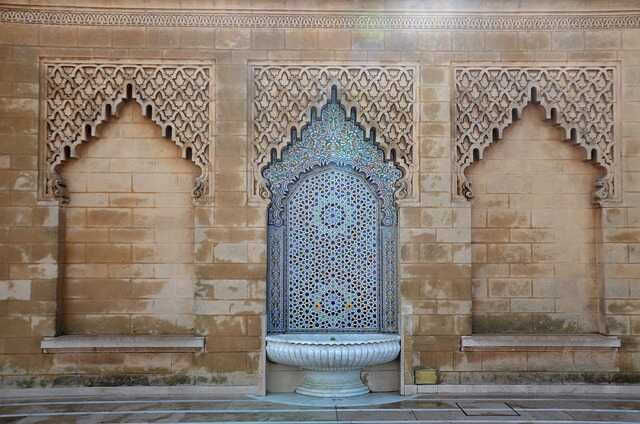Seeking forgiveness: Islamic Penance Prayer
In Islam, seeking forgiveness and repentance from Allah is an essential aspect of spiritual growth and strengthening one’s relationship with the Creator. The Islamic Penance Prayer, also known as the Repentance Prayer or Salat al-Tawbah, is a powerful act of seeking forgiveness for sins committed and expressing sincere remorse.
This article will guide you through the procedures and intentions of the Islamic Penance Prayer, offering the prayers in Latin (with Arabic letters for pronunciation assistance) and English translation.
Procedures of the Penance Prayer:
- Make Wudu (Ablution): Before performing the Penance Prayer, ensure you have completed the ritual ablution (wudu) to purify yourself spiritually.
- Find a Quiet Place: Seek a secluded and peaceful area for prayer, away from distractions, to fully concentrate on seeking Allah’s forgiveness.
- Raise Hands and Begin Prayer: Latin: “Bismillāh, Al-ḥamdu lillāh, Allāhu Akbar.” Arabic: “بِسْمِ ٱللّٰهِ ٱلرَّحْمٰنِ ٱلرَّحِيْمِ، اَلْحَمْدُ لِلّٰهِ رَبِّ ٱلْعٰلَمِيْنَ، اَللّٰهُ اَكْبَرُ”
- Recite Al-Fatihah: Proceed to recite Surah Al-Fatihah, the opening chapter of the Quran, as it is an integral part of every Islamic prayer. Latin: “Al-ḥamdu lillāhi Rabbil ‘ālamīn. Ar-Raḥmānir-Raḥīm. Māliki yawmi-d-Dīn. Iyyāka na’budu wa iyyāka nasta’īn. Ihdināṣ-ṣirāṭal mustaqīm. Ṣirāṭal-ladhīna an’amta ‘alayhim. Ghayril-maghḍūbi ‘alayhim wa laḍ-ḍāllīn. Āmīn.” Arabic: “ٱلْحَمْدُ لِلّٰهِ رَبِّ ٱلْعَـٰلَمِينَ، ٱلرَّحْمـٰنِ ٱلرَّحِيمِ، مَـٰلِكِ يَوْمِ ٱلدِّينِ، إِيَّاكَ نَعْبُدُ وَإِيَّاكَ نَسْتَعِينُ، ٱهْدِنَا ٱلصِّرَٰطَ ٱلْمُسْتَقِيمَ، صِرَٰطَ ٱلَّذِينَ أَنْعَمْتَ عَلَيْهِمْ، غَيْرِ ٱلْمَغْضُوبِ عَلَيْهِمْ وَلَا ٱلضَّآلِّينَ ۚ”
- Recite a Repentance Verse: After Al-Fatihah, recite a verse or passage from the Quran that specifically pertains to seeking forgiveness and repentance. A common verse for this purpose is Surah Az-Zumar (39:53). Latin: “Qul yā ‘ibādīya allażīna asrafū ‘alā anfusihim lā taqnātū min raḥmatillāh. Inna Allāha yaghfiruḍ-ḍhunūba jamī’an. Innahu Huwal-Ghafūrur-Raḥīm.” Arabic: “قُلْ يَا عِبَادِيَ الَّذِينَ أَسْرَفُوا عَلَىٰ أَنفُسِهِمْ لَا تَقْنَطُوا مِن رَّحْمَةِ اللَّهِ ۚ إِنَّ اللَّهَ يَغْفِرُ الذُّنُوبَ جَمِيعًا ۚ إِنَّهُ هُوَ الْغَفُورُ الرَّحِيمُ”
- Make Sincere Repentance: While standing or in sujood (prostration), express sincere repentance to Allah, acknowledging the sins committed, feeling remorseful, and resolving not to repeat them.
- Ask for Forgiveness: Seek Allah’s forgiveness wholeheartedly, asking Him to pardon your sins and grant you His mercy and guidance.
- Pray for All Believers: Take a moment to pray for the forgiveness and well-being of all believers, seeking goodness and blessings for the entire Muslim community.
- Conclude with Taslim: Complete the Penance Prayer with the taslim, the salutation to the right and left, by turning the head to the right and then to the left, saying: Latin: “As-salāmu ‘alaykum wa raḥmatullāh.” Arabic: “ٱلسَّلَامُ عَلَيْكُمْ وَرَحْمَةُ ٱللَّٰهِ”
Read also: Islam Prayers in Difficult Times To Ask For Help
Intentions of the Penance Prayer:
The Penance Prayer is an act of worship, and like all prayers in Islam, it requires a sincere intention (niyyah). Before starting the prayer, one should intend in their heart to perform the Penance Prayer solely for seeking Allah’s forgiveness, expressing remorse, and turning back to Him with a sincere heart.
By performing the Penance Prayer with sincerity and devotion, believers can experience the profound blessings of forgiveness, purification of the soul, and the attainment of spiritual closeness to Allah.
Conclusion:
The Islamic Penance Prayer is a powerful means of seeking forgiveness and drawing closer to Allah. It is an act of humility, remorse, and sincere repentance that holds significant rewards for the believer. By following the procedures and making heartfelt intentions, one can experience the transformative effects of this sacred prayer in their journey towards spiritual purification and closeness to the Almighty.
As Muslims, let us embrace the blessed month of Ramadan as an opportunity to engage in sincere repentance, seek Allah’s mercy, and become better individuals, contributing positively to our communities and the world at large. May Allah accept our repentance, forgive our sins, and grant us guidance on the righteous path. Ameen.
(Note: The Latin transliterations provided here are intended as pronunciation guides for those unfamiliar with Arabic, but it is essential to seek proper instruction or listen to experienced practitioners for accurate pronunciation and recitation.)
Sources: IslamSuciBeriman, IslamBasics, PinterPandai, ZamZam

